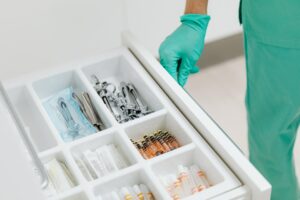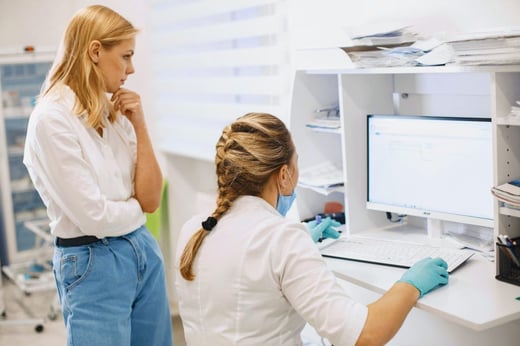
Medical Device Network publishes 42T’s article on healthier carbon emissions
October 2022
42T medical device development specialist Sarah Knight and engineering consultant Tim Hartley discuss how the medical device field can reduce carbon emissions, in their article for Medical Device Network.
In a recent BBC article, it was found that a surprising fraction of the greenhouse gas emissions released by the NHS was from a single product: inhalers. Studies recommended switching some users from pressurised gas inhalers containing HFCs (potent greenhouse gases) to powder-based inhalers, as it has been reported that this has a positive impact on both the planet and patients.

This change had the potential to deliver vast improvements to the carbon footprint of the NHS. But are there other significant improvements that can be made from alterations to medical products?
The medical devices field has been slow to change to sustainable practices in the way that other industries have. This is largely due to the higher levels of regulation, challenging requirements such as sterilisation and biocompatibility. Also, the need to undertake stringent re-validation and clinical evaluation if a significant change is made to an existing product.
Read the full article on the Medical Device Network's website.

Share this article:
Related Articles

Healthcare & Life Sciences
Health Innovation East & 42T host free webinar to help power Net Zero NHS

Healthcare & Life Sciences
Women in STEM: paving the way for innovation in women’s health

News, Company Announcements
42T organises awareness activities during Neurodiversity Celebration Week

What will you ask us today?
We believe in asking the right questions to drive innovation; when we know the right questions, we generate the ideas to answer them.

